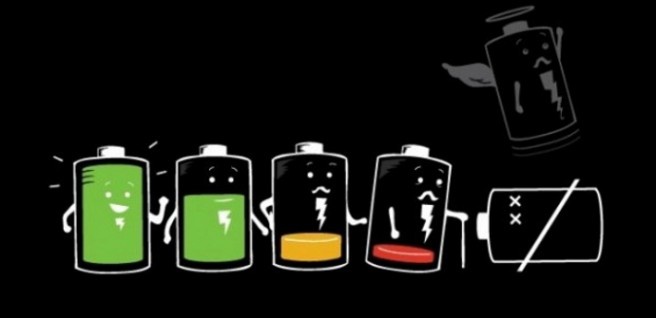660
Google secretly investigates new batteries for mobile devices that will revolutionize the sector
Written by
April 11, 2015 at 11:08
As we have commented on numerous occasions, despite the fact that the autonomy of its mobile devices is one of the concerns of the users, it is also one of the least advances it has experienced in recent years: our smartphones and tablets have increasingly more powerful processors, screens with more resolution, spectacular cameras (now also in the front) and are increasingly thin, but if we put together in a single ranking of autonomy the high-end devices of 2015 with those of the last 3 years, we can be sure that we will find some of the most “old ”Among the highest positions. It is true that it is an achievement in itself to be able to offer a good autonomy despite having more demanding screens and processors (the best example is probably the Galaxy Note 4), but it is also undeniable that it is the sector most in need of an authentic revolution and parece, judging by the latest news, that this could come from the hand of Google.
Better batteries: the goal of Google X
As our colleagues told us about Mobile Zone last night, the Wall Street Journal has made public that within Google X, a department dedicated to the investigation of the highest level and most confidential, there is still an even smaller research team dedicated to an even more secret project (so far, at least): it is formed only by 4 members and led by Ramesh Bhardwaj, a former battery expert Manzana, and have been working precisely in this field since 2012. What have they been doing during these three years? What is the formula with which they would have achieved this promising progress that the WSJ? Apparently, batteries that instead of with liquid chemicals, they would be made up of solids, which would allow them to go smaller and thinner, in addition to more secure.

We are not surprised, in any case, to know that Google He is working in this field, in the first place, because it is a field in which (although it does not seem so due to the lack of progress) many other technology giants are also making significant investments and, secondly, because we already knew from times in which Moto X It was him "X Phone"To get a better autonomy It was one of the company's main concerns, as Larry Page himself acknowledged. The problem of these efforts, which is also not new but is the problem with which all new technologies for batteries have been found before (and many others in many other fields), is whether or not this new formula can pass the test of a mass production economically profitable and safe.
What to do until then?
Presumably before or after someone will find the key, and it seems that Google He has a good opportunity to sign up, but it seems that, unfortunately, we should not expect the desired innovation to come in the near future, so it seems that the solution will remain, fundamentally and even for a while, both from the side of the manufacturers, with new software and less demanding components, such as from the user side, with responsible use, keep trying to minimize consumption of our devices. That, or support a return to thicker devices or bet on phablets large, whose screens consume more but can also mount batteries of much greater capacity.

Until then, we remind you that if this issue concerns you particularly, we have at your disposal a ranking with smartphones with better autonomy, some compilation of battery saving tips and that whenever a new smartphone or tablet goes through independent tests To test them in this regard, we bring you the results (the last one to go through them has been the brand new Galaxy S6).

